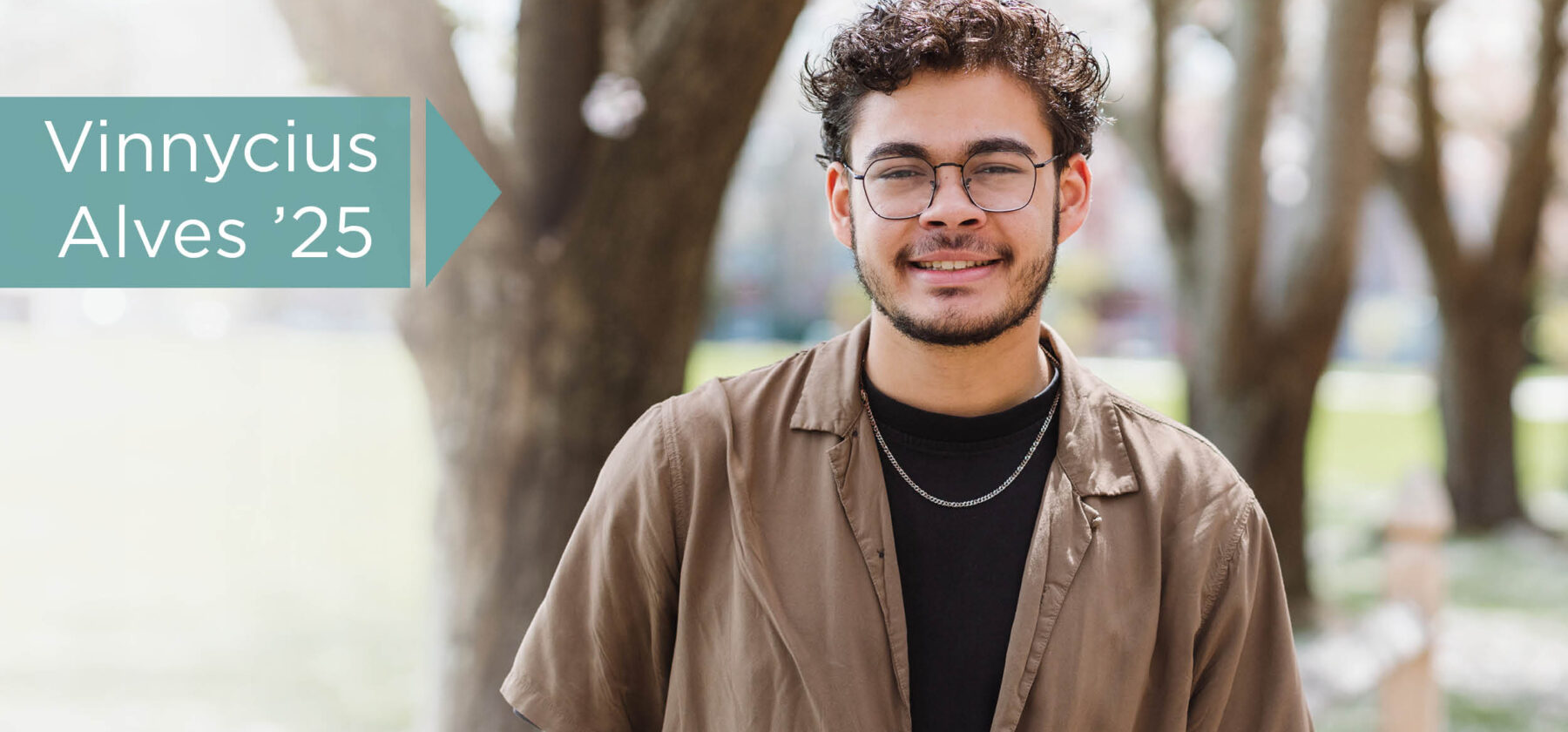From Adversity to Advocacy: First-Gen Student Vinnycius Alves’ Mission to Bridge Mental Health Gaps in Urban Communities
A version of this article originally appeared in the fall 2024 issue of STILLPOINT magazine.
According to the National Institute for Mental Health, more than one in five U.S. adults live with a mental illness or struggle with a form of mental illness (57.8 million in 2021). Global Health found that the prevalence of psychological distress of children of immigrants is nearly double (10.1 percent) that of their parents (5.9 percent). But for Vinnycius “Vinny” Alves `26, a first-generation student who grew up in Lowell, MA, these stats are a reality. In his Brazilian-American urban community, he witnessed the burden of overcommitment, stress and burnout plague his church and neighborhood.
Alves wanted to do something about this. He felt God was calling him to be the first in his family to attend college, where he could combine psychology and biblical studies into a practical career that helps heal others through God’s love. “I have always loved talking about God and learning theology, even when I was very young,” Alves says. “And then I’ve always loved learning about people. That’s the nature of what I want to do: See people, love people, love God.”
Seeing Healing in Others’ Lives
Alves has witnessed God’s healing power firsthand in his personal and familial life. His dad came from a broken home, with parents who were involved in Macumba, a type of Brazilian voodoo, and divorced young. Alves’s dad left home around age 14 and immigrated to the States. There he met Alves’s mom, who immigrated to the U.S. as a child, and she led him to Christ.
The two of them married and settled in Lowell to start a family. But finding jobs to support three young kids, Alves being the oldest, was tough. As finances got tighter, his family moved into his grandmother’s house, with all five members squeezing into one room. Alves’s dad worked two jobs for four years, sometimes only coming home for 20 minutes in between, until they made enough money to move into their own place once again.
Despite their hardship, Alves was inspired by his father’s growth. Through his hard background, the Lord grew him into a loving father and devoted husband who was willing to sacrifice everything to ensure his family had a better life than he did. “Seeing my dad’s growth within his faith and within his own character throughout the past years [has been inspiring],” Alves says. “He’s been definitely a monolith in my family.”
Seeing God Provide
While Alves’s parents always had hoped that he would go to college, there were several barriers in his way. First was his career goal. “There’s this taboo in my culture where only the people who go to therapy are the people who are crazy,” he says.
As a first-generation student, Alves had to navigate the road to that career without a map—finding his way through the college search, application process and the FAFSA on his own. There were a few college readiness programs like Upward Bound and Gear Up, but with only three staff members at his school of 4,000 students, resources and answers were scarce.
Even though Alves secured scholarships to a few local colleges, it wasn’t enough to cover tuition. Fortunately, Gordon’s Clarendon Program made Gordon’s tuition feasible. “That’s why I’m pretty sure God wants me here,” he says. “Every single time I wasn’t supposed to be here, something else comes up to keep me here.”
Seeing People Through God’s Eyes
Alves’ college career thus far has been a journey of him learning to see others through God’s eyes, but also allowing others to see him. “I have a very wide perspective in different areas of hardships because I come from the inner city,” he says. “And then at Gordon, you now have people who have been through the same hardships but you’re adding the faith elements. It’s something that has opened my mind, built upon my own theology and corrected me in certain things.”
After he graduates, Alves plans to return to an urban environment and use his degree to treat people in a very practical way within the city but also within the church. “I believe a lot of times like we neglect the mind and we hide behind the language of ‘give it to God,’” he says. “When God’s asking you to go through the process of healing—that looks different than just getting on your knees and praying ‘God, take this from me’ or ‘Help me escape from this.’ It looks like him leading you by hand through the things that hurt you in order to heal you.”
 The Bell
The Bell